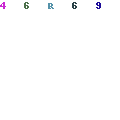Monash University professor lectures on ecosystems as spontaneous orders
Andy Lamey, a Monash University professor, explored the concept of ecosystems as spontaneous orders when he presented to members of the philosophy department last week.

Andy Lamey, a professor from Monash University in Australia, discussed ecosystems as spontaneous orders last week. Photo by Kari Williams
Through the lens of philosopher Friedrich Hayek, Lamey discussed how spontaneous order – order out of chaos – relates to ecosystems, the role species play in nature-led manipulation and the superiority of wild over restored nature.
Lamey said, according to Hayek, central planning in a natural economy was impossible. Central planning is the idea of one entity controlling economic activity.
Lamey compared this idea to running a pencil factory and trying to determine how many pencils should be created. Workers at such a factory could survey people, but the needs of the people may change.
Lamey also noted it is difficult to start planning on a scale of natural economy without prices. In natural economy, bartering or sharing replaces using money to purchase goods and services.
On a larger scale, natural economy is impossible because the enormous amount of information in the ecosystem is constantly changing.
In a market economy, which is based on supply and demand, prices solve the information problem. But in the output of a system, not all factors that control price can be seen.
Species in an ecosystem seem to play a similar role to prices in the marketplace, according to Lamey.
Species play a double-sided input and output role in ecosystems, which are a product of competition, Lamey said. He also notes that “species are created by the ecosystem in which it finds itself.”
In discussing spontaneous order versus organization, Lamey said Hayek believed intervening in attempts to control price is doomed to failure. Lamey used the example of a rent freeze, which could cause people to stop building and supplying places to live.
One argument Hayek makes that Lamey called “golden escape No. 1” relates to the idea of ignorance versus beyond justice, which plays no role in Lamey’s analysis
This idea states that outcomes in spontaneous orders are not matters of justice because they are not the result of human intentions. The idea argues that only human conduct is just or unjust.
Some interventions in nature could backfire, Lamey argued, but he noted it seems there is an ability to determine when an ecosystem’s equilibrium is out of order.
For example, people should seek to avoid introducing exotic species into new ecosystems, according to Lamey.
Lamey said he was also “trying to avoid this idea that we should never manipulate nature.” Special kinds of activity should try to be avoided, but Lamey said that does not always mean disruption is wrong.
He also discussed nature-led attributes and nature-led appropriations. Attributes are efforts to reintroduce endangered species into the wild. Appropriations are interactions with nature that would seem to include activities not so much interventions as appropriations of natural entities.
Filed Under: Philosophy












